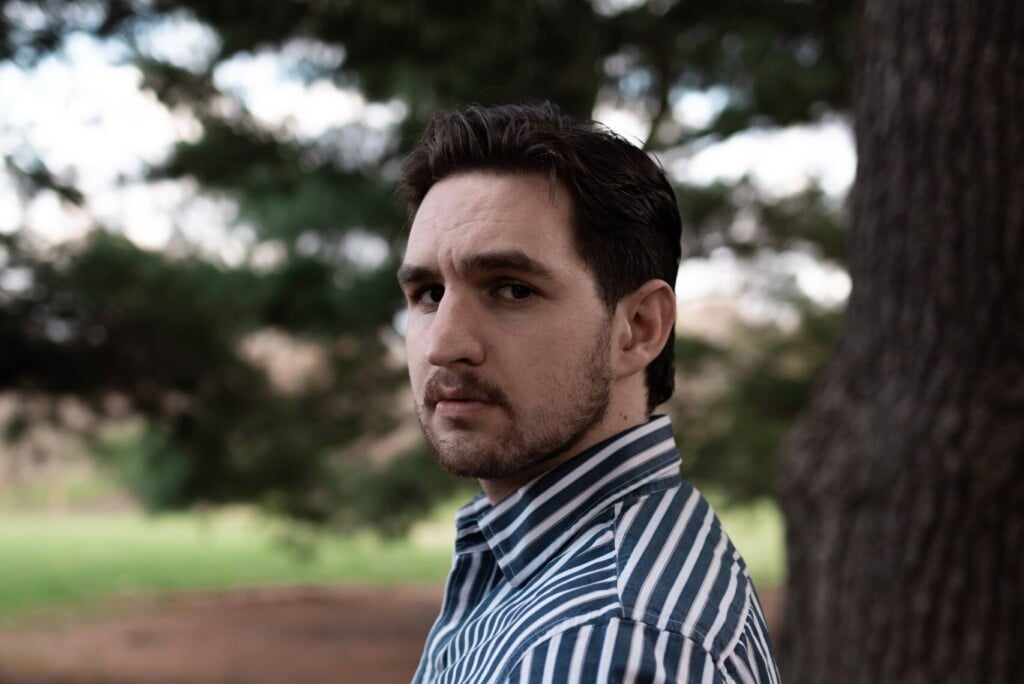Hey, Sailors
It’s a bitch trying to get a giant stuffed grizzly across international borders these days.
“We have a big bear. He’s been coming onstage with us lately,” Hamilton explains in a British accent thicker than a London phone book. “We’d like to bring our bear [to the United States], but he’s not allowed through customs, apparently.”
Hamilton is the unimonikered bassist for British Sea Power, the five-piece band that is all the rage around the indie campfire these days. (Four of the five members are billed with one-word names.) The bear is one of the concert props that reflects the group’s slightly skewed humor, to say nothing of its penchant for taxidermy.
“It’s a shame he can’t come,” Hamilton says. “He’s a big fella. I guess there’s no room for him.”
Fortunately, customs officials have yet to put the hammer down on the rest of British Sea Power’s stage décor, which includes several smaller stuffed animals and a full forest of trees and shrubs that competes for space with the usual array of amps, drums and pedal boards. When you spend most of your nights in dingy dives and seedy taverns, it’s nice to spruce up the joint once in a while.
“It’s good to make a bit of effort,” Hamilton says. “It just came out of nowhere, really. I don’t know how. We just want to put on a special night and create a world that we feel happy in. We’ve always liked trees and forests, so it’s a nice thing to be associated with.”
British Sea Power couldn’t see the forest for the trees when the band got its start in early 2000 playing tiny clubs in front of minuscule audiences in and around Brighton, on the southeastern coast of England. The band’s break was ripped from the pages of a B-movie script. Geoff Travis, head of the Rough Trade record label, happened upon one of those throwaway gigs and was immediately struck by the group’s military uniforms and predilection for spouting classic British poetry. The impressive array of stuffed owls littering the stage didn’t hurt, either. Travis offered the band a contract on the spot.
“We were never that greatly involved in the music scene,” Hamilton explains. “There were other bands around, but we’ve never been a joiner of things like that. Some of those bands should probably be forcibly replaced. But there’s a few all right ones as well. They’re quite colorful even if they’re a bit unbelievable. Lively but unsatisfying.”
British Sea Power’s sound is precisely the opposite. The band’s debut, The Decline of British Sea Power, is a shape-shifting glam-rock rumination that’s about as wet and foggy as the English Channel. The group’s center of gravity is guitarist Noble, who mixes oceanic waves of six-string slashing as vocalist Yan’s tortured yelp soars over the top and drummer Wood maintains the tempo.
At times, Decline is wildly pretentious (“Lately” clocks in just shy of fourteen minutes), but it’s also utterly original. The album has caught the ear of the international music press since its release last year; Rolling Stone, NME and even The New York Times have weighed in with positive reviews and comparisons galore (citing Joy Division and the Psychedelic Furs regularly). Perhaps the most prescient commentary came from Elle magazine, which hailed Decline as “the record Radiohead might make if they didn’t still fear the power of cataclysmic guitars.”
But the band has had some difficulty translating its sound on record to the stage. To re-create what the group has accomplished in the studio, British Sea Power recruited Eamon last year to handle keyboards and percussion.
“We drafted him in for a tour ’cause we needed someone to fill out the sounds we put on the record,” Hamilton recalls. “We met him on the streets of Brighton. He was living out of a big sack that he carried on his back. He kind of had nowhere to go, so we gave him a home, and he just kind of stuck around.”
The question remains whether British Sea Power will stick around as well or slip back into the cracks of the indie underground. Only their taxidermist knows for sure, but the group seems determined to keep its music fresh for as long as possible.
The band recently spent three weeks holed up in an old church in the British countryside, where it crafted new material for its next release. The downtime was a welcome relief for a group that has spent much of the past year on the road. But although British Sea Power has become one of Britain’s top draws, the band has yet to break big on American shores. To date, its biggest U.S. show was a performance at last year’s South by Southwest music festival in Austin, Texas.
Back home, the band has opened for a slew of heavyweights, sharing the stage with the Flaming Lips, Interpol and the Strokes.
“That was kind of a weird one,” Hamilton says of the Strokes outing. “It was the end of our long tour, the last thing we did. So we were all a bit confused about the whole thing. And they were such big places that we had never played before. So it was kind of a whirlwind, but we seemed to get through it all right. They all seem like nice fellas. They took us to the casino in Dublin and gave us money to bet, so they must be OK.”
Did the gambling pay off?
“No, we spent it on drink.”




